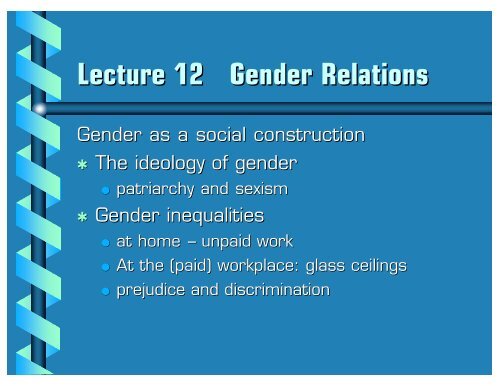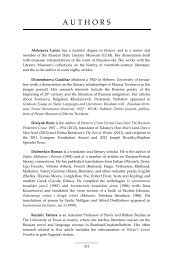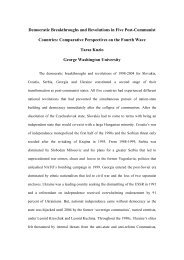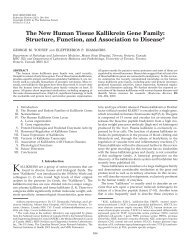Lecture 12 Gender Relations
Lecture 12 Gender Relations
Lecture 12 Gender Relations
- No tags were found...
You also want an ePaper? Increase the reach of your titles
YUMPU automatically turns print PDFs into web optimized ePapers that Google loves.
<strong>Lecture</strong> <strong>12</strong> <strong>Gender</strong> <strong>Relations</strong><strong>Gender</strong> as a social construction✱ The ideology of gender● patriarchy and sexism✱ <strong>Gender</strong> inequalities● at home – unpaid work● At the (paid) workplace: glass ceilings● prejudice and discrimination
Sexism as a social problem✱ Mainly a problem for women?● Links with other social problems● Social consequences of sexism● Health consequences of sexism✱ Why sexism is a problem for men too● Objectification● Discrimination
Other problems in gender✱ Violence and victimization● domestic violence● date rape● Resistance to victimization✱ What do the media contribute?● “objectification of women”
Problems for gender relations✱ Can unequal people …● Trust each other and cooperate?● Speak openly to each other?● Willingly sacrifice for each other?✱ If not, what are consequences for● Family life● childbearing● Workplace cooperation?✱ Are these problems new?
Theoretical questions:● How are gender groups like classes?● How are gender groups like ethnicgroups?● Why does gender differentiation occur?● Why does gender differentiationpersist?● Why does gender inequality persist?
The biggest theoretical question✱ Does the decline of gender differentiationproduce a decline in gender inequality?✱ If so, how can we further reduce genderdifferentiation?✱ How has gender differentiation beenreduced so far?● Protest● Legislation● Other factors
Horizontal differentiation (again)✱ Are women “closer” than men?✱ Are women “close” because of● connectedness● similarity● identification(structural)(demographic)(psychological)✱ How are gender groups affected by● language and culture● prejudice and discrimination?
Are genders social systems?✱ No, they are not institutionally complete✱ They don’t t have shared● goals, leaders, politics● ceremonies, ritual objects● deep beliefs, tension releasing practices✱ Or do they?✱ How to gain institutional completeness?
Melting pot or multiculturalism?✱ Which would benefit society most?● <strong>Gender</strong> assimilation, or● <strong>Gender</strong> multiculturalism✱ Which would benefit women most?● <strong>Gender</strong> assimilation, or● <strong>Gender</strong> multiculturalism
Case study: Styles of speakingIn classroom presentations…..✱ Women are more likely than men to raisetheir voice at the end of a statement✱ Why do they do this?✱ What are the consequences of thisdifference in speaking style?
Case Study: Careers in science✱ Sonnert and Holton, Amer Scientist, vol.84✱ Among former recipients of prestigiouspostdoc fellowships in science, math, eng● in all but biology, women are almost one fullrank behind men of equal productivity● women leaving science were more likely tocite family responsibilities● 73% of women report discrim, , exclusion -e.g., not treated like colleagues by advisors
Female versus male scientists✱ Women are more meticulous: theirarticles cited more often than men’s s (insame field)✱ Yet, women report less self-confidence,ambition, ability than men✱ Women likelier to cite “bad luck”in career✱ Women more likely to take their post-docto be with spouse (esp. if they have child)● this group is less successful in career
The importance of informality✱ “The way people succeed is being able torecognize, take advantage of a goodthing.”✱ Keys to success in science favor men:● good mentor makes introductions● teaches junior scholar how to play game● junior scholar must play freely, bravely✱ Men have more “entrepreneurial spunk” -show off more
















